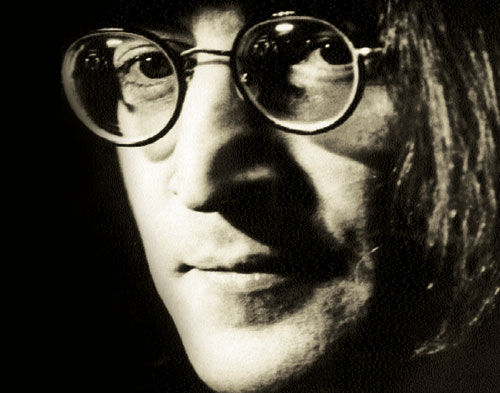Lennon struggled with fame even as he looked for it
John, wherever you are, I can see the expression on your face. During your life, I saw that expression a thousand times. An expressionless expression, face frozen, neither smiling nor frowning, eyes fixed on the target of your contempt, unblinking. It was all in the eyes, steely and devoid of warmth.
I would never want to be on the receiving end of that expression.
The Vatican has forgiven John Lennon for a 1966 interview in which he said The Beatles were bigger than Jesus: "John Lennon's quote was simply the boast of a young man thrust into the limelight and grappling with fame."
Must have been a really slow day at the Vatican.
Yet, in 1966, all hell broke loose in response to Lennon's remarks. Radio stations banned The Beatles. Communities organized rallies for heretofore Beatles fans to bring albums and memorabilia to be gathered and burned in bonfires. And, with eyes averted and no little shame, let me confess now an act for which I will certainly spend a few years in rock 'n' roll purgatory: My older sister and I Frisbee'd Beatles records against the wall of our basement. We felt very proud and "with it." And sure that God was proud of us, too.
And, in the years following, I spent scads of money re-collecting every Beatles LP ever made with original Capital Record labels. Turns out I wasn't really all that offended.
John "apologized." It was the worst apology ever: "Originally I had pointed out that fact in reference to England, that we meant more to kids than Jesus did, or religion at that time. I wasn't knocking it or putting it down, I was just saying it. It was a fact. And it's true more for England than (the United States). I'm not saying that we're better or greater, or comparing us with Jesus Christ as a person, or God as a thing. I just said what I said and it was wrong, or it was taken wrong, and now it's all this."
You hear an apology in that? Me neither. It's John's contempt. What John said was a fact. Christianity at that time and place was not compelling the imaginations, hearts and minds of young people as The Beatles were. You have to go back to Palm Sunday, perhaps, to see a Jesusmania that rivals the Beatlemania of the mid-'60s.
Christians remember the Gospel story. Jesus' triumphal entry into Jerusalem, a week before he was executed. He road a donkey into town, while the people sang and rejoiced.
The donkey often is thought of as an expression of Jesus' utter humility. But I'm convinced it was yet another expression of Jesus' favorite political ploy: satire. Yep. Jesus wasn't orchestrating and basking in his fans' adulation. He was satirizing the pretense of pompous Roman authority and particularly Pontius Pilate, who always thundered through the Jerusalem city gates on a decorated horse.
Jesus had contempt for pretense and hypocrisy.
Offended religious leaders complained to Jesus about the praising crowd, and implored him to tell them to be quiet. Jesus replied, "Well, I could tell them to be quiet, but then the rocks would just start singing."
A boast? Hardly. Jesus was merely observing. When a group of people is caught up in The Spirit, there's no stopping the ecstatic response.
The Vatican says John Lennon's quote was "a boast." Wrong. It was an observation. A contemptuous, incredulous observation. John Lennon was the first Beatle to truly despise Beatlemania. His arrogant, biting quips to adoring fans are legendary.
But the Vatican was right about one thing. John Lennon was a young man grappling with fame. And grappling badly much of the time. John hated fame, yet could not stop seeking it. When he and wife Yoko posed naked on the cover of Two Virgins, John is at once a narcissistic exhibitionist and a man pleading with himself and the world, "I'm just a man."
In that same notorious interview, by the way, Lennon described the 12 disciples as "thick" and "ordinary." Which they were. Once again, John Lennon is right.
That's why the disciples have always inspired me, actually. Because they are just like me.
John Lennon was a celebrity. In Latin literally "the one who helps us celebrate." And did he ever help us celebrate. And the price he paid was the burden of fame. Celebrity is a calling. Fame is simply nuts. In the end fame killed him.
If anybody needs forgiveness here, it's us.
Originally published in View News, May 4, 2010.














